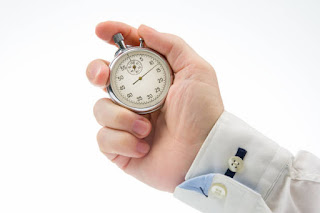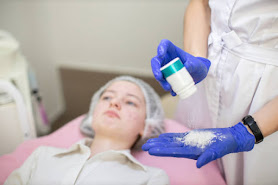Gastric Sleeve Surgery Recovery Time
Are you considering gastric sleeve surgery but worried about the recovery process? You're not alone. Recovering from any surgery can be a daunting experience, but don't worry, we've got you covered. In this blog post, we'll discuss everything you need to know about recovery time from gastric sleeve and what to expect during your journey to a healthier life. With our tips for a successful recovery, you'll be back on your feet in no time! So let's dive in and explore the world of gastric sleeve surgery recovery together.
What Is Gastric Sleeve Surgery?
Gastric sleeve surgery, also known as sleeve gastrectomy, is a weight loss surgery that involves removing a portion of the stomach to create a smaller "sleeve" shape. This procedure limits the amount of food one can eat and reduces feelings of hunger.
The surgery is usually performed laparoscopically under general anesthesia and typically takes 1-2 hours. During the surgery, about 75% - 85% of the stomach is removed leaving behind only a small tube-shaped stomach.
This type of weight loss surgery is recommended for individuals with obesity who have not been able to lose weight through traditional methods such as dieting or exercise. It's important to note that gastric sleeve surgery should be considered as an option only after other interventions have failed.
After undergoing this procedure, patients can expect significant weight loss in the first year and improved overall health outcomes including decreased risk for diabetes and cardiovascular disease. However, it's important for patients to commit to lifelong changes in their eating habits and lifestyle post-surgery in order to maintain long-term success.
The Recovery Process
After undergoing gastric sleeve surgery, the recovery process is an essential part of the entire procedure. Most patients are curious about how long it takes to recover and what they can expect during this period.
The first few days following surgery will mostly be spent in the hospital. Patients will receive intravenous fluids for hydration and pain medication to manage discomfort. Surgeons may also prescribe antibiotics to prevent infection.
As you progress in your recovery, you'll begin with a liquid diet, followed by pureed foods before transitioning into solid foods gradually. It's vital that patients follow their surgeon's dietary guidelines strictly as improper eating habits could derail the healing process.
During recovery from gastric sleeve surgery, daily exercise is crucial but should only commence when your body has fully healed after six weeks or more post-surgery.
While every person’s experience differs, most people report feeling less full after meals than before their operation. Many also find they have more energy and are better able to perform physical activities such as exercising regularly without getting winded quickly.
While each patient’s journey through gastric sleeve recovery time may differ slightly depending on various factors like age, overall health status pre-and post-operation recovery experiences can provide immense benefits if taken seriously!
What to Expect During Recovery
During the recovery process after gastric sleeve surgery, patients can expect to experience physical and emotional changes. It is important to be aware of these changes and take necessary steps to manage them.
In the first few days after surgery, patients will likely feel discomfort or pain in their abdomen. This discomfort may persist for a week or two as the body adjusts to its new shape. Patients should follow their doctor's instructions on taking pain medication and managing pain.
Patients may also experience fatigue during recovery from gastric sleeve surgery. This is normal and expected as the body goes through major changes. Resting frequently throughout the day can help combat this fatigue.
It is important for patients to stick to a strict diet plan during the recovery period, which includes only consuming liquids at first before transitioning slowly back into solid foods over time. Following this diet plan strictly will ensure that patients do not put any unnecessary strain on their digestive system while it heals.
Emotionally, some patients may experience mood swings or feelings of depression during recovery from gastric sleeve surgery due to feeling overwhelmed by the lifestyle changes required for success post-surgery. Joining a support group or speaking with a mental health professional can help alleviate these feelings and provide additional guidance towards successful long-term weight loss results.
Tips for a Successful Recovery
The recovery time from gastric sleeve after a gastric sleeve surgery can be challenging for patients, but there are steps you can take to make your recovery more successful. Here are some tips:
1. Follow Your Doctor's Orders: It is essential to follow the post-operative instructions given by your doctor. These guidelines include dietary restrictions and exercise limitations.
2. Stay Hydrated: Drinking enough water during recovery is crucial as it aids in digestion and helps prevent dehydration.
3. Slowly Introduce Solids: After surgery, patients must start with a liquid diet before gradually transitioning to solid foods over several weeks.
4. Take It Easy: Resting and taking time off work or other activities will allow your body to heal properly without added strain.
5. Support System: Having support from family or friends can help ease any anxiety about the procedure and assist with daily tasks while recovering.
6. Attend Follow-Up Appointments: Regular check-ups with your surgeon ensure that you're healing correctly, and any complications can be addressed promptly.
By following these tips, patients can have a smoother recovery process after their gastric sleeve surgery and achieve better long-term results in terms of weight loss and improved health outcomes
Conclusion
Gastric sleeve surgery can be life-changing for those struggling with obesity. However, it's important to remember that the recovery process is just as crucial as the procedure itself. Taking care of yourself during this time and following your surgeon's instructions will ensure a smoother recovery period and improve overall outcomes.
Remember to take things slow and steady, listen to your body, eat nutritious foods according to your plan, stay hydrated, move around gently when possible and get plenty of rest. With patience and determination, you can achieve success in both weight loss goals and long-term health.
If you are considering undergoing gastric sleeve surgery or have already scheduled an operation date with your doctor, use this guide as a starting point for understanding what to expect during the recovery process. With proper preparation beforehand and diligent aftercare following surgery , you will soon be on track towards achieving a healthier lifestyle filled with more energy and vitality!




